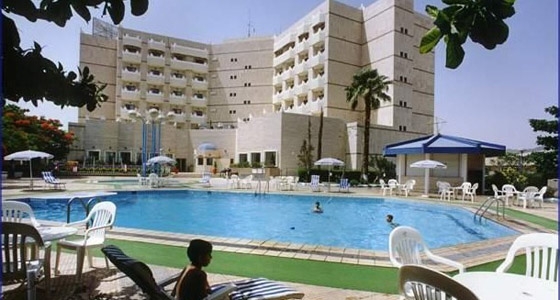There is a limited supply of quality internationally branded economy hotels in the Kingdom of Saudi Arabia. New findings from Colliers International research showed that there are currently 7 notable cities without any such hotel stock, representing a significant gap in the market.
The forthcoming supply of internationally branded economy hotels is strong, with 1,182 rooms expected to be delivered to the market across the Kingdom by 2015. These rooms will include well-established brands such as Ibis, Centro, Premier Inn and Holiday Inn Express.
Colliers International's investigation found evidence that the market could potentially absorb an additional 34,882 economy hotel rooms over and above forthcoming supply over the next five years, spread across major and secondary cities.
The total hotel supply in the Kingdom in in 2011 was estimated at 157,430 rooms, of which only 22 percent was classified under the "three star" categorization, the report said.
Of these hotels, approximately 70 percent of the rooms can be found in the Makkah region, with the remaining 30 percent primarily spread over Riyadh, Madinah, Eastern Province, Asir, Tabuk, Jazan and Al Baha.
Research conducted by Colliers International indicated that 19 percent of economy hotels across the Kingdom are branded. The level of branded economy hotels can range from 52 percent in Taif, to 12 percent in Jeddah to 0 percent in Jazan.
Confirmed forthcoming supply of internationally branded economy hotels include approximately 336 rooms by 2013, 484 by 2014 and 1,182 by 2015 across Saudi Arabia. Key players involved include Ibis, Centro, Premier Inn and Holiday Inn Express with the majority of these rooms located in cities such as Riyadh, Jeddah, Dammam and Al-Khobar.
In addition to this, Wyndham Worldwide have signed an agreement with the Saudi Automotive Services Company to develop 20 hotels under the Super 8 brand.
Moreover, Colliers research into 15 cities across the Kingdom indicated that economy hotel occupancy levels range from 61 percent to 80 percent in major cities and 51 percent to 68 percent in secondary cities.
As economy hotels are volume driven they tend to operate 5 percent to 10 percent above the market-wide occupancy levels with average room rates between SR354 and SR400. In some secondary cities economy hotels command a higher ADR than in major cities due to a lack of hotel supply resulting in rate compression. In major cities, economy hotels are characterized by aging stock despite competitive markets.
Markets such as Jazan, Hail and Tabuk are near upcoming economic cities which are either being planned or are under development. Colliers saw that they would benefit drastically from their proximity to these demand generators.
Based on the Colliers Econometric Model for the period 2013-2017, the KSA market could potentially absorb an additional 34,882 economy hotel rooms over and above forthcoming supply, spread over primary and secondary cities.
Internationally branded economy hotels match the market's demographic profile well, providing a modern product that is appropriate for families and travelers alike. Furthermore, the affordable nature of the product appeals well to the price sensitive audience.
Branded economy hotels contribute to the micro-economies of secondary cities by creating employment opportunities and enhancing global reach through the use of international distribution systems.
Land plot requirements for these hotels range from 1,800 sqm to 2,500 sqm depending on building height and location. The cost-efficient operating model generates high net operating profits.
From an investor perspective, good opportunities can be developed in areas where land costs range from SR6,000 to SR20,000/sqm. Based on the current profitability ratios of such hotels, economy hotels prove to be a lucrative investment, with potential IRR ranges between 18 percent and 21 percent. Such projects typically exhibit a leveraged IRR between 25 percent and 27 percent depending on the financing structure available.
Given that only 19 percent of all economy hotels across the Kingdom are branded, Colliers sees that there is a market gap for this asset class.
The Saudi Gazette
12 January







































































